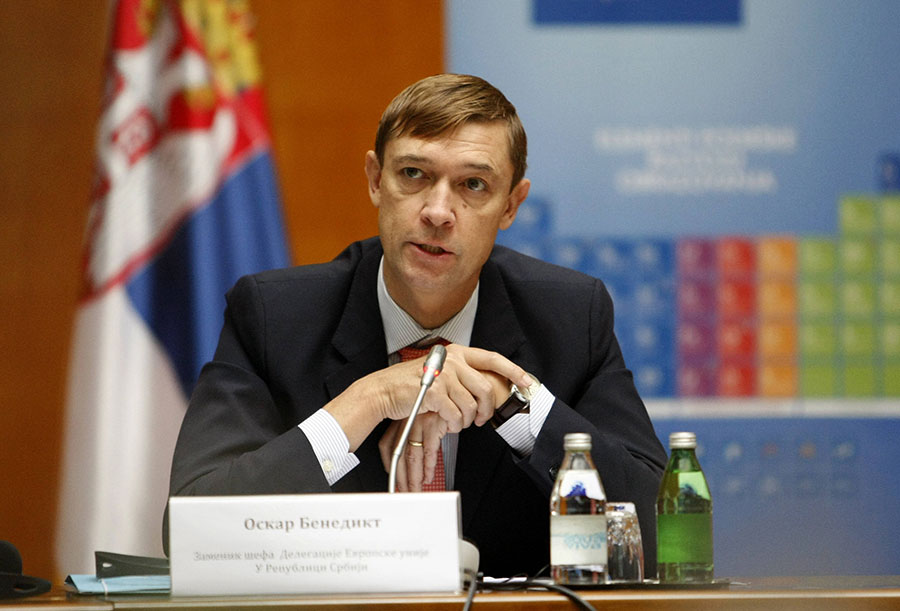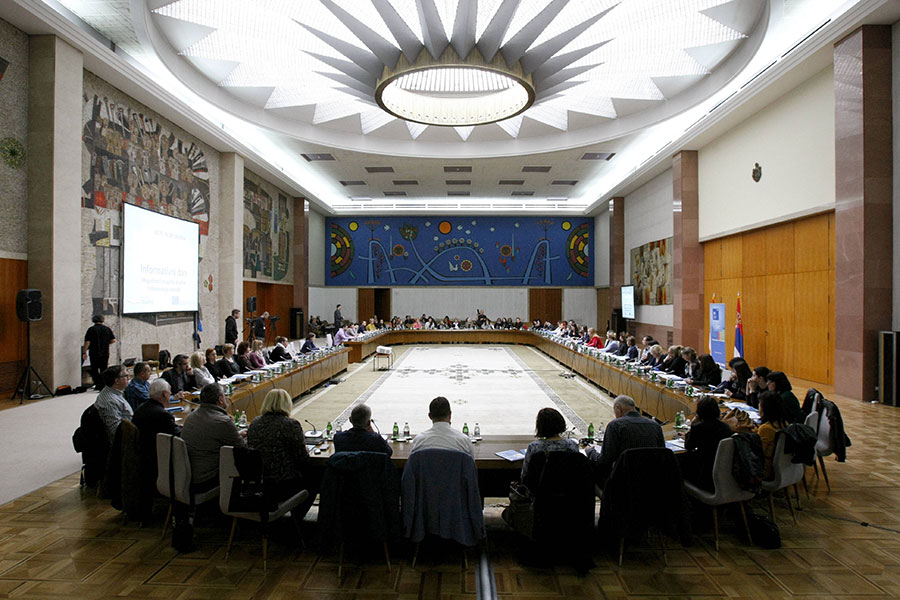Preschools, elementary and high schools and institutions providing vocational training will in the coming period be able to take part in mobility projects for teaching and non-teaching staff within Erasmus+ programme, announced the participants of National Info Day about the opportunities for general, vocational and adult education.
As announced, starting from current application period, both organisations and institutions engaged in adult education in Serbia will be able to submit project proposals for projects within which they will send their teaching staff and staff in charge of strategic development of organisations to attend vocational training abroad.
Teaching and non-teaching staff will thus gain the experience of learning and be brought closer to working methods in other countries.
Deputy Head of the EU Delegation to Serbia Oskar Benedikt said he was honoured to attend the Info Day aimed at bringing the audience closer to marvellous opportunities offered by Erasmus+ exchange programmes.
“Erasmus+ programme is one of our most successful and best known programmes which in the last 60 years yielded the best results in the EU in terms of European integration. Through its programmes we connect young people – pupils, students, teachers, professors, schools, universities from across Europe,” Benedikt said.

Beta
State Secretary at the Ministry of Education, Science and Technological Development Gordana Predic reminded that this major EU programme of international cooperation in the area of education and youth was held in respect across Europe and participated in by all EU Member States, candidate countries and other countries in the neighbourhood.
“This year’s application period represents a significant shift compared to previous years. We have made progress when it comes to the role given to our institutions: namely, as of 2016, thanks to efforts made by the Ministry and the Government, Serbia kicked off its preparatory measures for a full-fledged participation in the programme,” Predic said.
She said that the process was part and parcel of Serbia’s EU accession process and an activity beneficial to the closing of chapter 26 which dealt with education and culture.
“Apart from the role of project partners, institutions have an opportunity to try out the responsible role of project applicants and once the funding has been approved, they must take care about the proper use of funding,” Predic said adding that this brings us closer to full-fledged participation in the programme.
Sofija Dukic of Tempus Foundation – the organisation which in cooperation with the Ministry of Education is in charge of implementation of the programme – said Erasmus+ was the biggest European cooperation programme in the area of education.
She said that last week the programme launched its calls for proposals, adding that Tempus is in charge of providing eligible organisations with information.
“We want to make a presentation of opportunities offered for the first time to Serbian schools and not only schools but an entire sector of education, by which I mean teaching staff exchange opportunities and, to a certain extent, exchange of vocational schools students,” Dukic said.
As she stressed, main goal is to draw attention of institutions and explain to them that they are responsible for the submission of project proposals in order to give their employees a chance to travel to EU countries, visit their colleagues and take part in teaching.
“Serbia has made substantial progress compared to previous calls for proposals precisely due to opportunities we discussed today: for the first time in 2016, schools and organisations engaged in adult education submit project proposals to our organisation as coordinators and not mere partners,” Dukic said.




